Eco Femme: opening up the conversation of menstruation (through reusable cloth pads)
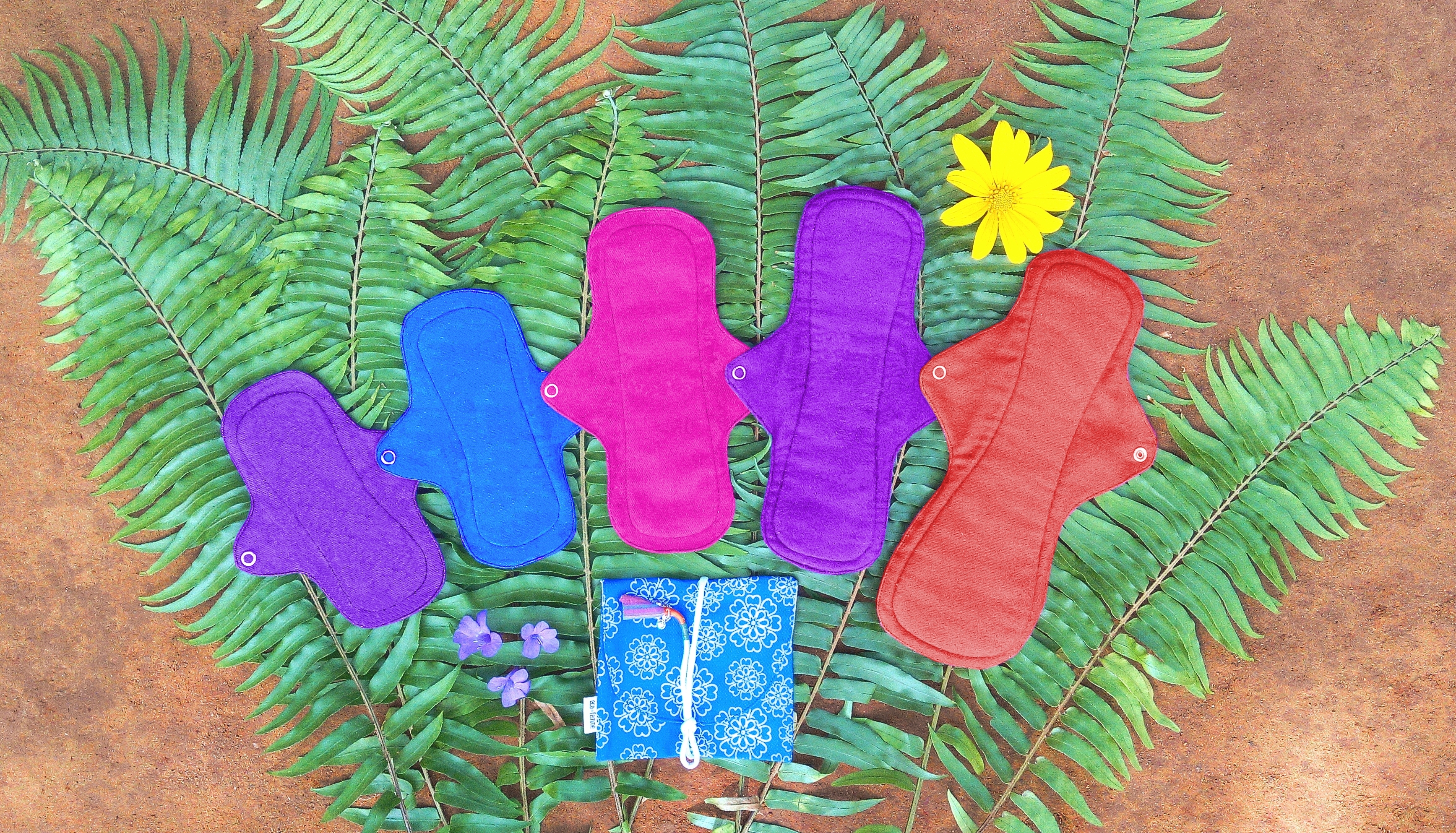
After I bought a menstrual cup, I became passionate about the topic of menstruation. I realised how rarely people talk about it; instead of appreciating our body and its cycles we hide it. By writing blogs about several products, I want to open up the conversation and show what wonderful products are available on the market.[1] As I came across Kathy and Jessamijn who started Eco Femme here in Auroville (India), I realized how little I knew about washable cloth pads.
By Nine de Jonge
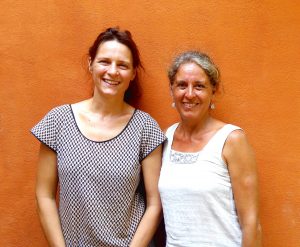
Jessamijn (left) & Kathy (right) // Source: Eco Femme
Menstruation in India
Jessamijn explained to me that, when Eco Femme started seven years ago, only little was known about reusable pads in India. For a long time, women used old fabrics to catch their blood. When the disposable pads entered the Indian market, it became an aspirational product. “The disposable industry spread the notion of cloth as an unhygienic practice. Initially we received feedback from women who perceived disposables as a new form of freedom and who saw the introduction for cloth pads as a regressive step.” However, these disposable pads also cause many problems.
As discussed in my interview with Yoni, disposable sanitary napkins contain a lot of toxics, causing many unpleasant effects on women’s bodies. Furthermore, there is a big waste problem here in India, because women burn, bury or flush the pads. Burning emits harmful chemicals into the air, buried pads are often found by dogs and will then take 500 years to disappear, and flushing is the number one cause of blockage in the sanitary pipelines. Kathy described that the sanitary waste as a whole was her wake-up call. She wanted to do something about this and at the same time create jobs for women in the villages. Consequently, she ‘accidentally’ became an entrepreneur.
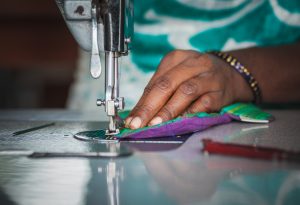
Source: Eco Femme
Eco Femme’s work
Eco Femme is a social enterprise making reusable cloth pads with a colourful design. The product is locally produced and stitched by women of the villages nearby Auroville. Besides the production and sale of pads, Eco Femme also created a curriculum. They go to schools to talk to girls about what menstruation is, how you can track your cycle and what you can do to take care of yourself during your period (simple herbal remedies and yoga exercises). Jessamijn shared me her own experience how moving a lot shortens her own period. During the class, they also show which products are available and discuss the pros and cons.
Besides schools Eco Femme also provides menstrual education to women of disadvantaged backgrounds across India, to provide a space where women can talk about their experiences and to show the diversity of available products. During their meetings, they came across many cultural differences, taboos and norms. They also emphasize the costs, which is a main concern for most women. Being much cheaper over the long run, makes reusable pads very attractive. Tampons are not often used in India, as it is culturally less accepted to use an internal product. For this reason, cups are also not so popular.
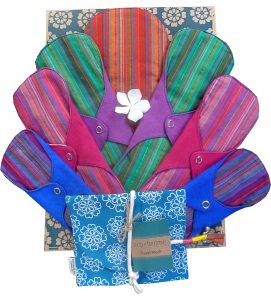
Full cycle pack // Source: Eco Femme
Reusable pads
There is a wide diversity in pads, made of materials such as bamboo, hemp and (like Eco Femme’s pads) cotton. Kathy explained that the reason for their choice is that there is plenty of cotton growing in India. Most cotton they use is organic, and they are now working on organic certification to produce a full organic product. Despite the entry of other companies that have launched reusables on the market, Jessamijn is pleased that the sustainable menstrual suppliers are increasing. “Together we can make more noise against the disposable industry!”
Eco Femme has different sizes, and pads specifically tailored for usage during day and night. The pads have press clickers, with which you click the pad around your panties to secure them in place. After usage you can also fold and click them into a small package.
How to clean it properly?
Kathy explained that the hygiene of the pads depends on how you look after it. When textile is blood stained, it is best to let it soak in cold water for about half an hour. In this way, the blood will dissolve, after which you can put the pads in the washing machine or hand wash them. Next, the pads need to properly dry in a clean place. This can be a problem in India because women often do not want others to see their pads. For this, Eco Femme designed a pad which can be unfolded into a square cotton cloth.
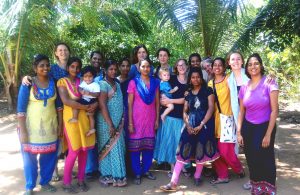
The team // Source: Eco Femme
Where to buy it?
The Eco Femme products are sold in about twenty countries, including many web shops in the Netherlands (for example: Katoenenko.nl). In the countries outside India, they have the ‘a pad for a pad’ business model, to be able to give away pads in India.
To end with the words of Jessamijn: “Menstruation is a theme that crosses cultural differences, it binds all women together.”
For more information about Eco Femme, their projects and research, visit their website: ecofemme.org
[1] I also wrote about Yoni, to show that disposables can be toxic free.